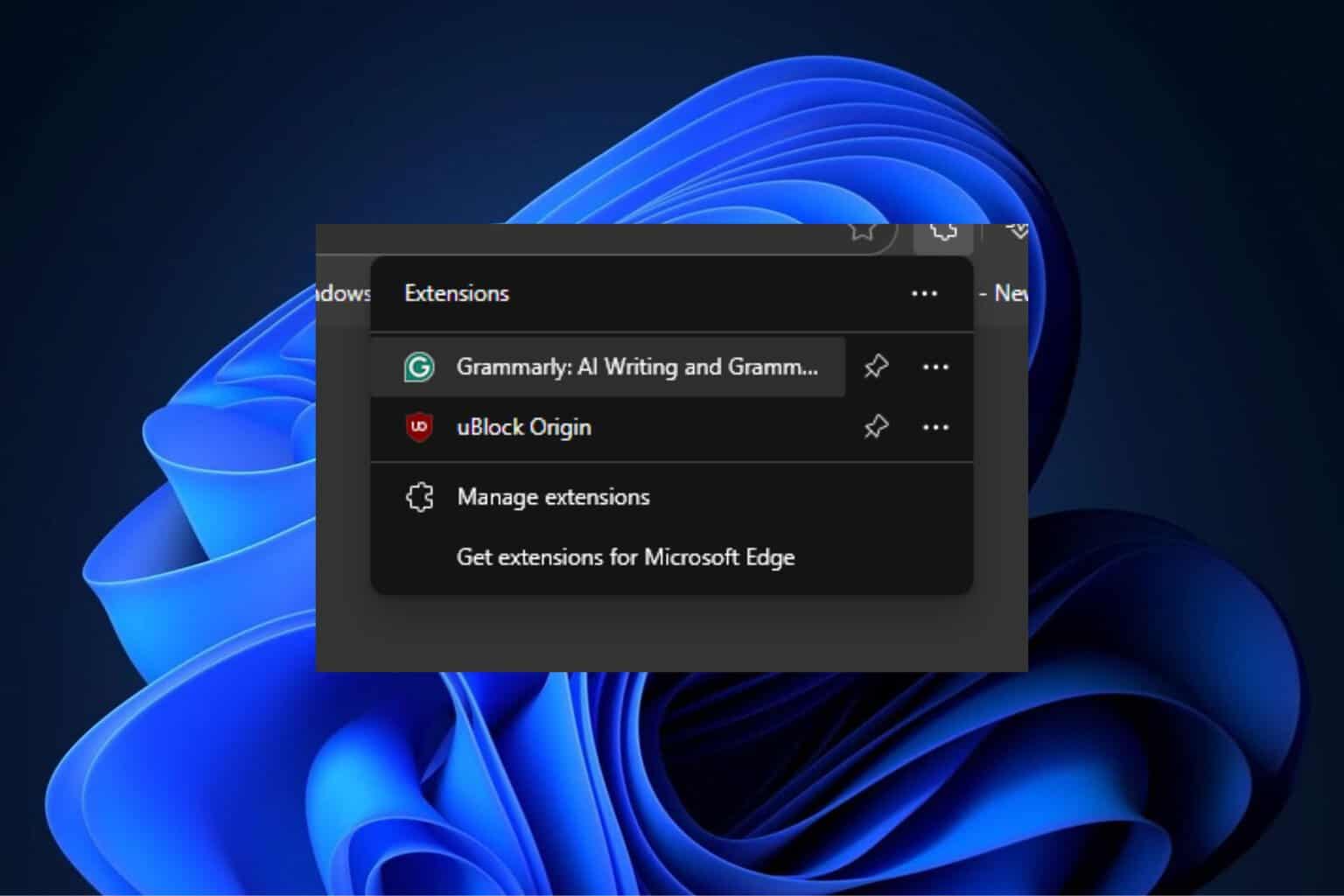The November 2025 Patch Tuesday adresses 91 vulnerabilities, including 4 zero-day ones
You should them updates as soon as possible.
7 min. read
Published on
Read our disclosure page to find out how can you help Windows Report sustain the editorial team. Read more

The November 2024 Patch Tuesday security updates have fixed 91 flaws, which include 4 zero-day vulnerabilities. As with most Patch Tuesday releases, November’s updates include fixes for Windows, Office, .NET, Visual Studio, SQL Server, and more vulnerabilities.
This month’s fixes list includes:
- 26 elevations of privilege vulnerabilities
- 2 security feature bypass vulnerabilities
- 52 remote code execution vulnerabilities
- 1 information disclosure vulnerability
- 4 denial of service vulnerabilities
- 3 spoofing vulnerabilities
Two of the zero-days fixed today are actively exploited in attacks, and the third was publicly disclosed but not exploited.
CVE-2024-43451 – NTLM Hash Disclosure Spoofing Vulnerability
This vulnerability discloses a user’s NTLMv2 hash to the attacker who could use this to authenticate as the user. Minimal interaction with a malicious file by a user such as selecting (single-click), inspecting (right-click), or performing an action other than opening or executing could trigger this vulnerability.
CVE-2024-49039 – Windows Task Scheduler Elevation of Privilege Vulnerability
In this case, a successful attack could be performed from a low privilege AppContainer. The attacker could elevate their privileges and execute code or access resources at a higher integrity level than that of the AppContainer execution environment.
CVE-2024-49040 – Microsoft Exchange Server Spoofing Vulnerability
Microsoft is aware of a vulnerability (CVE-2024-49040) that allows attackers to run spoofing attacks against Microsoft Exchange Server. The vulnerability is caused by the current implementation of the P2 FROM header verification, which happens in transport.
CVE-2024-49019 – Active Directory Certificate Services Elevation of Privilege Vulnerability
Check if you have published any certificates created using a version 1 certificate template where the Source of subject name is set to “Supplied in the request” and the Enroll permissions are granted to a broader set of accounts, such as domain users or domain computers. An example is the built-in Web Server template, but it is not vulnerable by default due to its restricted Enroll permissions.
Here’s the complete list of all the vulnerabilities Microsoft addresses with the November 2024 Patch Tuesday update.
| Tag | CVE ID | CVE Title | Severity |
|---|---|---|---|
| .NET and Visual Studio | CVE-2024-43499 | .NET and Visual Studio Denial of Service Vulnerability | Important |
| .NET and Visual Studio | CVE-2024-43498 | .NET and Visual Studio Remote Code Execution Vulnerability | Critical |
| Airlift.microsoft.com | CVE-2024-49056 | Airlift.microsoft.com Elevation of Privilege Vulnerability | Critical |
| Azure CycleCloud | CVE-2024-43602 | Azure CycleCloud Remote Code Execution Vulnerability | Important |
| LightGBM | CVE-2024-43598 | LightGBM Remote Code Execution Vulnerability | Important |
| Microsoft Defender for Endpoint | CVE-2024-5535 | OpenSSL: CVE-2024-5535 SSL_select_next_proto buffer overread | Important |
| Microsoft Edge (Chromium-based) | CVE-2024-10826 | Chromium: CVE-2024-10826 Use after free in Family Experiences | Unknown |
| Microsoft Edge (Chromium-based) | CVE-2024-10827 | Chromium: CVE-2024-10827 Use after free in Serial | Unknown |
| Microsoft Exchange Server | CVE-2024-49040 | Microsoft Exchange Server Spoofing Vulnerability | Important |
| Microsoft Graphics Component | CVE-2024-49031 | Microsoft Office Graphics Remote Code Execution Vulnerability | Important |
| Microsoft Graphics Component | CVE-2024-49032 | Microsoft Office Graphics Remote Code Execution Vulnerability | Important |
| Microsoft Office Excel | CVE-2024-49029 | Microsoft Excel Remote Code Execution Vulnerability | Important |
| Microsoft Office Excel | CVE-2024-49026 | Microsoft Excel Remote Code Execution Vulnerability | Important |
| Microsoft Office Excel | CVE-2024-49027 | Microsoft Excel Remote Code Execution Vulnerability | Important |
| Microsoft Office Excel | CVE-2024-49028 | Microsoft Excel Remote Code Execution Vulnerability | Important |
| Microsoft Office Excel | CVE-2024-49030 | Microsoft Excel Remote Code Execution Vulnerability | Important |
| Microsoft Office SharePoint | ADV240001 | Microsoft SharePoint Server Defense in Depth Update | None |
| Microsoft Office Word | CVE-2024-49033 | Microsoft Word Security Feature Bypass Vulnerability | Important |
| Microsoft PC Manager | CVE-2024-49051 | Microsoft PC Manager Elevation of Privilege Vulnerability | Important |
| Microsoft Virtual Hard Drive | CVE-2024-38264 | Microsoft Virtual Hard Disk (VHDX) Denial of Service Vulnerability | Important |
| Microsoft Windows DNS | CVE-2024-43450 | Windows DNS Spoofing Vulnerability | Important |
| Role: Windows Active Directory Certificate Services | CVE-2024-49019 | Active Directory Certificate Services Elevation of Privilege Vulnerability | Important |
| Role: Windows Hyper-V | CVE-2024-43633 | Windows Hyper-V Denial of Service Vulnerability | Important |
| Role: Windows Hyper-V | CVE-2024-43624 | Windows Hyper-V Shared Virtual Disk Elevation of Privilege Vulnerability | Important |
| SQL Server | CVE-2024-48998 | SQL Server Native Client Remote Code Execution Vulnerability | Important |
| SQL Server | CVE-2024-48997 | SQL Server Native Client Remote Code Execution Vulnerability | Important |
| SQL Server | CVE-2024-48993 | SQL Server Native Client Remote Code Execution Vulnerability | Important |
| SQL Server | CVE-2024-49001 | SQL Server Native Client Remote Code Execution Vulnerability | Important |
| SQL Server | CVE-2024-49000 | SQL Server Native Client Remote Code Execution Vulnerability | Important |
| SQL Server | CVE-2024-48999 | SQL Server Native Client Remote Code Execution Vulnerability | Important |
| SQL Server | CVE-2024-49043 | Microsoft.SqlServer.XEvent.Configuration.dll Remote Code Execution Vulnerability | Important |
| SQL Server | CVE-2024-43462 | SQL Server Native Client Remote Code Execution Vulnerability | Important |
| SQL Server | CVE-2024-48995 | SQL Server Native Client Remote Code Execution Vulnerability | Important |
| SQL Server | CVE-2024-48994 | SQL Server Native Client Remote Code Execution Vulnerability | Important |
| SQL Server | CVE-2024-38255 | SQL Server Native Client Remote Code Execution Vulnerability | Important |
| SQL Server | CVE-2024-48996 | SQL Server Native Client Remote Code Execution Vulnerability | Important |
| SQL Server | CVE-2024-43459 | SQL Server Native Client Remote Code Execution Vulnerability | Important |
| SQL Server | CVE-2024-49002 | SQL Server Native Client Remote Code Execution Vulnerability | Important |
| SQL Server | CVE-2024-49013 | SQL Server Native Client Remote Code Execution Vulnerability | Important |
| SQL Server | CVE-2024-49014 | SQL Server Native Client Remote Code Execution Vulnerability | Important |
| SQL Server | CVE-2024-49011 | SQL Server Native Client Remote Code Execution Vulnerability | Important |
| SQL Server | CVE-2024-49012 | SQL Server Native Client Remote Code Execution Vulnerability | Important |
| SQL Server | CVE-2024-49015 | SQL Server Native Client Remote Code Execution Vulnerability | Important |
| SQL Server | CVE-2024-49018 | SQL Server Native Client Remote Code Execution Vulnerability | Important |
| SQL Server | CVE-2024-49021 | Microsoft SQL Server Remote Code Execution Vulnerability | Important |
| SQL Server | CVE-2024-49016 | SQL Server Native Client Remote Code Execution Vulnerability | Important |
| SQL Server | CVE-2024-49017 | SQL Server Native Client Remote Code Execution Vulnerability | Important |
| SQL Server | CVE-2024-49010 | SQL Server Native Client Remote Code Execution Vulnerability | Important |
| SQL Server | CVE-2024-49005 | SQL Server Native Client Remote Code Execution Vulnerability | Important |
| SQL Server | CVE-2024-49007 | SQL Server Native Client Remote Code Execution Vulnerability | Important |
| SQL Server | CVE-2024-49003 | SQL Server Native Client Remote Code Execution Vulnerability | Important |
| SQL Server | CVE-2024-49004 | SQL Server Native Client Remote Code Execution Vulnerability | Important |
| SQL Server | CVE-2024-49006 | SQL Server Native Client Remote Code Execution Vulnerability | Important |
| SQL Server | CVE-2024-49009 | SQL Server Native Client Remote Code Execution Vulnerability | Important |
| SQL Server | CVE-2024-49008 | SQL Server Native Client Remote Code Execution Vulnerability | Important |
| TorchGeo | CVE-2024-49048 | TorchGeo Remote Code Execution Vulnerability | Important |
| Visual Studio | CVE-2024-49044 | Visual Studio Elevation of Privilege Vulnerability | Important |
| Visual Studio Code | CVE-2024-49050 | Visual Studio Code Python Extension Remote Code Execution Vulnerability | Important |
| Visual Studio Code | CVE-2024-49049 | Visual Studio Code Remote Extension Elevation of Privilege Vulnerability | Moderate |
| Windows CSC Service | CVE-2024-43644 | Windows Client-Side Caching Elevation of Privilege Vulnerability | Important |
| Windows Defender Application Control (WDAC) | CVE-2024-43645 | Windows Defender Application Control (WDAC) Security Feature Bypass Vulnerability | Important |
| Windows DWM Core Library | CVE-2024-43636 | Win32k Elevation of Privilege Vulnerability | Important |
| Windows DWM Core Library | CVE-2024-43629 | Windows DWM Core Library Elevation of Privilege Vulnerability | Important |
| Windows Kerberos | CVE-2024-43639 | Windows Kerberos Remote Code Execution Vulnerability | Critical |
| Windows Kernel | CVE-2024-43630 | Windows Kernel Elevation of Privilege Vulnerability | Important |
| Windows NT OS Kernel | CVE-2024-43623 | Windows NT OS Kernel Elevation of Privilege Vulnerability | Important |
| Windows NTLM | CVE-2024-43451 | NTLM Hash Disclosure Spoofing Vulnerability | Important |
| Windows Package Library Manager | CVE-2024-38203 | Windows Package Library Manager Information Disclosure Vulnerability | Important |
| Windows Registry | CVE-2024-43641 | Windows Registry Elevation of Privilege Vulnerability | Important |
| Windows Registry | CVE-2024-43452 | Windows Registry Elevation of Privilege Vulnerability | Important |
| Windows Secure Kernel Mode | CVE-2024-43631 | Windows Secure Kernel Mode Elevation of Privilege Vulnerability | Important |
| Windows Secure Kernel Mode | CVE-2024-43646 | Windows Secure Kernel Mode Elevation of Privilege Vulnerability | Important |
| Windows Secure Kernel Mode | CVE-2024-43640 | Windows Kernel-Mode Driver Elevation of Privilege Vulnerability | Important |
| Windows SMB | CVE-2024-43642 | Windows SMB Denial of Service Vulnerability | Important |
| Windows SMBv3 Client/Server | CVE-2024-43447 | Windows SMBv3 Server Remote Code Execution Vulnerability | Important |
| Windows Task Scheduler | CVE-2024-49039 | Windows Task Scheduler Elevation of Privilege Vulnerability | Important |
| Windows Telephony Service | CVE-2024-43628 | Windows Telephony Service Remote Code Execution Vulnerability | Important |
| Windows Telephony Service | CVE-2024-43621 | Windows Telephony Service Remote Code Execution Vulnerability | Important |
| Windows Telephony Service | CVE-2024-43620 | Windows Telephony Service Remote Code Execution Vulnerability | Important |
| Windows Telephony Service | CVE-2024-43627 | Windows Telephony Service Remote Code Execution Vulnerability | Important |
| Windows Telephony Service | CVE-2024-43635 | Windows Telephony Service Remote Code Execution Vulnerability | Important |
| Windows Telephony Service | CVE-2024-43622 | Windows Telephony Service Remote Code Execution Vulnerability | Important |
| Windows Telephony Service | CVE-2024-43626 | Windows Telephony Service Elevation of Privilege Vulnerability | Important |
| Windows Update Stack | CVE-2024-43530 | Windows Update Stack Elevation of Privilege Vulnerability | Important |
| Windows USB Video Driver | CVE-2024-43643 | Windows USB Video Class System Driver Elevation of Privilege Vulnerability | Important |
| Windows USB Video Driver | CVE-2024-43449 | Windows USB Video Class System Driver Elevation of Privilege Vulnerability | Important |
| Windows USB Video Driver | CVE-2024-43637 | Windows USB Video Class System Driver Elevation of Privilege Vulnerability | Important |
| Windows USB Video Driver | CVE-2024-43634 | Windows USB Video Class System Driver Elevation of Privilege Vulnerability | Important |
| Windows USB Video Driver | CVE-2024-43638 | Windows USB Video Class System Driver Elevation of Privilege Vulnerability | Important |
| Windows VMSwitch | CVE-2024-43625 | Microsoft Windows VMSwitch Elevation of Privilege Vulnerability | Critical |
| Windows Win32 Kernel Subsystem | CVE-2024-49046 | Windows Win32 Kernel Subsystem Elevation of Privilege Vulnerability | Important |
In addition to the above vulnerabilities, Microsoft has also fixed a bug in Windows that caused blue screens on Windows Server 2025 devices. The problem would occur during backups or deduplication jobs.
Furthermore, a new update for Microsoft Exchange Server 2025 adds a warning to emails that could be abusing the CVE-2024-49040 vulnerability.
Microsoft released the November 2024 Patch Tuesday updates for Windows 10 and Windows 11, managing to fix some frustrating issues on these operating systems.
Windows users can get the November 2024 Patch Tuesday updates via Windows Update, Microsoft Update, or downloading them from the Microsoft Update Catalog website.








User forum
0 messages